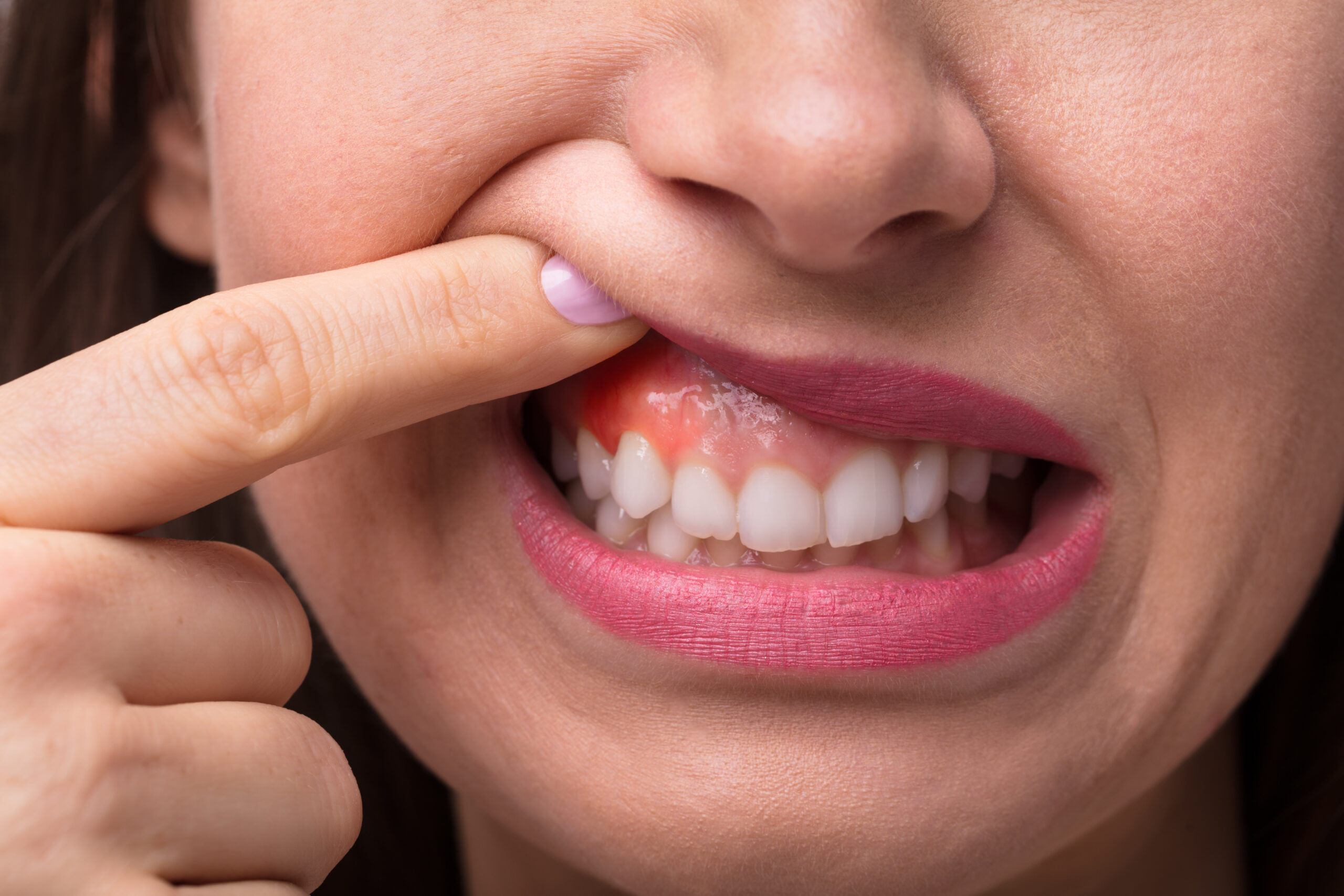Professional periodontal treatment can significantly improve the condition of your gums and your overall oral health, especially if you already suffer from gum disease. In this article, we discuss seven tips for maintaining gum health.
Why Is Gum Health Important?
Unhealthy gums can get inflamed and infected. This condition is called gum disease. Even though gum disease can be effectively treated in the early stages, it can become challenging to deal with if it becomes advanced. Gum disease is dangerous for multiple reasons:
- Constant mouth infection can negatively affect other organs in the body, such as the gastrointestinal system.
- Gum disease, in particular, is associated with the heart, lungs, and joint issues, as well as diabetes.
- Periodontal infection can penetrate the deeper layers of the gum tissue and eventually the jaw bone, leading to tooth mobility, tooth loss, and a decrease in jawbone density.
- The jaw bone damaged by gum disease can cause changes in facial structure, such as a sunken appearance.
What Causes Gum Disease?
Food residue that lingers on the teeth turns into plaque filled with bacteria. If plaque is not removed in time, it hardens and forms tartar, which is impossible to remove at home by brushing and flossing. Tartar is acidic and is also filled with bacteria, which destroys the teeth and gums, leading to tooth decay, oral infections, and gum disease.
Symptoms of Gum Disease
Only your dentist can give an accurate diagnosis after conducting a physical exam and taking an x-ray or scans. In addition, symptoms of gum disease might vary from patient to patient and depend on the type of infection and other factors. However, to help you stay informed, we list the most common symptoms of gum disease below. Visit your general dentist or a periodontist as soon as possible if you have any of the following symptoms:
- Your gums are swollen, red, or look inflamed.
- Your gums are painful or tender when touched with a finger or a tongue.
- You experience pain when chewing food.
- Your gums bleed every time you brush or floss your teeth.
- You experience persistent gum bleeding.
- Your teeth feel mobile or shaky.
- You started feeling uncomfortable when biting down or chewing food because your bite changed.
- You notice that pus oozes from your gums, or you have inflamed pockets of pus within the gums.
- You have pimples on the gums.
- Your gums are receding—pulling away from your teeth, exposing the parts of your teeth that used to be covered with gum tissue.
- Your gums do not fit your teeth snugly, but there is space between the teeth and the gums.
7 Tips for Maintaining Gum Health
- The key to maintaining gum health is a thorough daily oral hygiene routine. Make sure to brush your teeth twice a day for at least two minutes. Floss every evening, but be careful not to lacerate the gums with the tread.
- Consider using a water flosser as an additional step in your routine. The device can be helpful in removing plaque along the gumline and from hard-to-reach areas in the mouth. However, remember that a water flosser can not replace brushing and flossing your teeth traditionally. A water flosser is most effective when used as a first step of your hygiene routine or after flossing but before brushing your teeth.
- Regular professional dental cleanings are another crucial part of maintaining gum health. Even if your at-home hygiene is excellent, some plaque will accumulate on your teeth and gums, especially in hard-to-reach places. Your dentist can use specialized equipment to effectively remove plaque and tartar to prevent gum disease and tooth decay.
- Regular checkups at a dental office can ensure that all potential dental issues are spotted and treated in time before they become severe oral health problems.
- Abstaining from smoking is another way to boost your gum health, as smoking is one of the leading risk factors for gum disease.
- A well-balanced diet, which is full of vitamins and minerals, can prompt your regeneration capacity and infection resistance, improving gum and overall oral health.
- Getting professional periodontal treatment is a must when gum disease has already occurred, and you can not improve your gum health with more conventional methods.
How Can Periodontal Treatment Help?
The goal of periodontal treatment is to prevent tooth and jawbone density loss. Periodontists have several tools and methods at their disposal:
- A professional deep cleaning is one of the most critical steps in treating gum disease. Deep cleaning at a dental office removes plaque, tartar, and bacteria from beneath the gum line and other spots that you can not reach with a brush or floss at home.
- Scaling and root planing procedures reduce and prevent the formation of periodontal pockets by cleaning and smoothing the teeth along the roots. This allows the gums to reattach to the teeth.
- Gum grafts can be used to treat receding gums by helping them regenerate.
- Bone grafting is used in cases of jawbone density loss to prompt its regeneration.
Make an Appointment Today
Now that you have these tips for maintaining gum health, you should know if you require a dental appointment. Do not hesitate to make an appointment with a dentist in Highland if your gum health is suffering. Specialists at East Highland Dental will carefully examine the condition of your teeth and gums and offer you the best treatment options and preventive solutions. We are looking forward to your visit.

